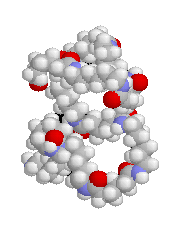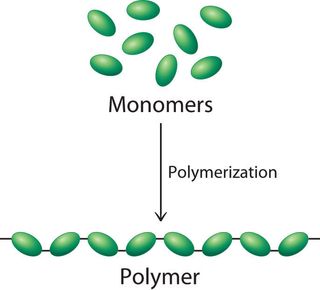Understanding Polymers: The Scientific Research Behind Versatile Materials
Understanding Polymers: The Scientific Research Behind Versatile Materials
Blog Article
Discovering the Varied Applications and Advantages of Polymers in Different Industries
Polymers, with their varied variety of residential properties and functionalities, have actually ended up being important in different industries, each enjoying special gain from their application. Polymers. From boosting safety and security and efficiency in the auto market to changing medical tools in the health care industry, polymers play a crucial function. Their eco-friendly nature is altering the landscape of sustainability methods. As we dive into the depths of polymers in electronic devices, we uncover sophisticated technologies, while their structural stability changes the world of building and construction and facilities. The pervasive impact of polymers throughout sectors is a testament to their convenience and versatility, shaping the future of countless fields.
Automotive Market Applications
Polymers play a critical duty in improving the efficiency and longevity of different components within the automotive industry. These functional materials are thoroughly utilized in the manufacturing of various parts, varying from interior elements to under-the-hood applications. One prominent use polymers in the automotive sector is in the production of light-weight elements. By changing conventional steel get rid of polymer-based options, vehicles can accomplish better fuel effectiveness without compromising on strength or safety.

Health Care Market Advantages
In different medical care applications, the benefits of making use of polymers are commonly recognized for their diverse series of helpful residential or commercial properties. Polymers play a critical duty in the medical care sector because of their convenience, biocompatibility, and cost-effectiveness. One of the key benefits of polymers in health care is their capability to be customized to certain demands, such as versatility, longevity, and biodegradability, making them excellent for a variety of clinical applications.
Polymer-based products are extensively used in clinical tools, such as catheters, implants, prosthetics, and medication shipment systems, due to their biocompatibility and ability to mimic all-natural cells. These products can decrease the risk of allergies or rejections, enhancing client security and results. Additionally, polymers are light-weight, making them suitable for wearable clinical devices and ensuring individual convenience.
Furthermore, polymers enable the advancement of ingenious therapy techniques, such as hydrogels for tissue engineering and nanocomposites for targeted drug shipment. Their simplicity of processing and sterilization makes them important for keeping high standards of health in healthcare settings. On the whole, the diverse benefits of polymers add substantially to advancements in medical technology and individual treatment.
Environmental Benefits of Polymers

In addition, polymers can contribute to energy cost savings as a result of their light-weight nature. In sectors such as transportation, lightweight polymer materials can assist minimize gas usage and greenhouse gas exhausts. In addition, polymers can make it possible for the development of energy-efficient products such as insulation materials that enhance power conservation in buildings.
In addition, polymers play a crucial function in reducing water pollution. For instance, making use of polymer-based filtration systems can effectively eliminate contaminants and pollutants from wastewater, securing water resources and environments. On the whole, the ecological benefits of polymers make them important possessions in promoting sustainability and environment-friendly techniques across various sectors.
Polymers in Electronic Devices and Innovation
Considering the increasing need for ingenious and sustainable remedies in modern-day markets, the integration of innovative polymer innovations in the realm of electronics and modern technology has actually arised as a critical strategy for driving efficiency and efficiency. Polymers have changed the electronics market by enabling the manufacturing of lighter, much more adaptable, and long lasting electronic gadgets. From smartphones to clinical devices, polymers play an essential function in enhancing item design and performance.
One significant benefit of polymers in electronic devices is their protecting buildings, which assist protect delicate electronic elements from environmental variables and electrical interference. In addition, polymers are vital in the development of adaptable screens, see this site wearable technology, and published discover this info here electronic devices, providing limitless possibilities for creating wise and interconnected gadgets.
Furthermore, the usage of polymers in digital product packaging has led to developments in miniaturization and thermal management, improving the general performance and integrity of digital systems. As technology remains to evolve, the versatility and flexibility of polymers will unquestionably drive further advancement in the electronics sector, shaping the future of modern technology.
Function of Polymers in Building and Facilities
Polymers provide numerous advantages in the building and construction market due to their flexibility, toughness, and cost-effectiveness. One crucial role of polymers in construction is their usage in finishes and sealants, supplying defense against environmental aspects such as wetness, UV radiation, and corrosion.
Moreover, polymers play a critical function in sustainable building practices by making it possible for the growth of energy-efficient frameworks. Protecting products made from polymers assist manage indoor temperatures, lowering the need for heating and cooling systems and eventually decreasing power intake - Polymers.
Conclusion
In final thought, polymers play a crucial role in different markets such as vehicle, medical care, ecological, electronics, and construction. Their versatile properties make them useful in developing cutting-edge services and items. From boosting gas performance in lorries to boosting clinical tools, polymers use many benefits. Furthermore, their effect on minimizing waste and promoting sustainability highlights their value in contemporary applications. The prevalent use polymers demonstrates their considerable payment to progressing modern technology and enhancing top quality of life.
Report this page